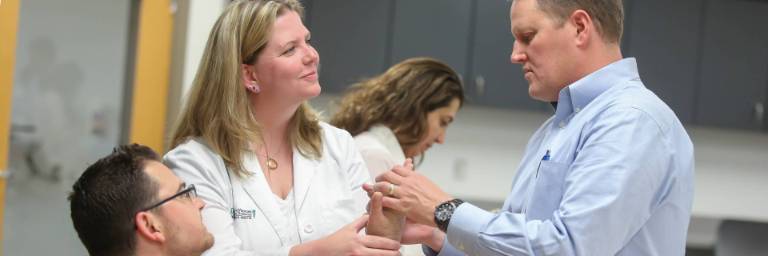Pre-Physician Assistant Program
Earn your undergraduate degree while preparing for a future as a physician assistant.
Physician Assistants are important members of the health care team who diagnose and treat illness and often provide primary care. The pre-physician assistant curriculum at UND prepares you for the rigors of physician assistant graduate school, and allows you to explore medicine before fully committing to the program. Help patients, doctors, nurses and the community by becoming a physician assistant.
- Program type:
- Pre-Professional Program
- Format:
- On Campus
- Est. time to complete:
- 4 years
- Credit hours:
- 120
What bachelor's degree do I need for physician assistant school?
Pre-Physician Assistant Programs
-
Work with your professional advisor to set your curriculum and stay on track.
-
Get help preparing for entrance exams, as well as applying and interviewing for professional school.
-
Connect with classmates in the Pre-Physician Assistant Club that brings together medical students from all areas.
-
Undergraduate research opportunities are available with renowned faculty and regional labs.
-
Let our team of academic advisors help you plan your major. You'll also have access to personalized software to keep you on track to graduate in four years.
-
Raise your grades by getting free academic support at UND. We offer individual tutoring sessions, along with specialized writing and math support programs.
Pre-Physician Assistant Program Courses
Leaders in Health
Develop the skills to shape the future of healthcare.
